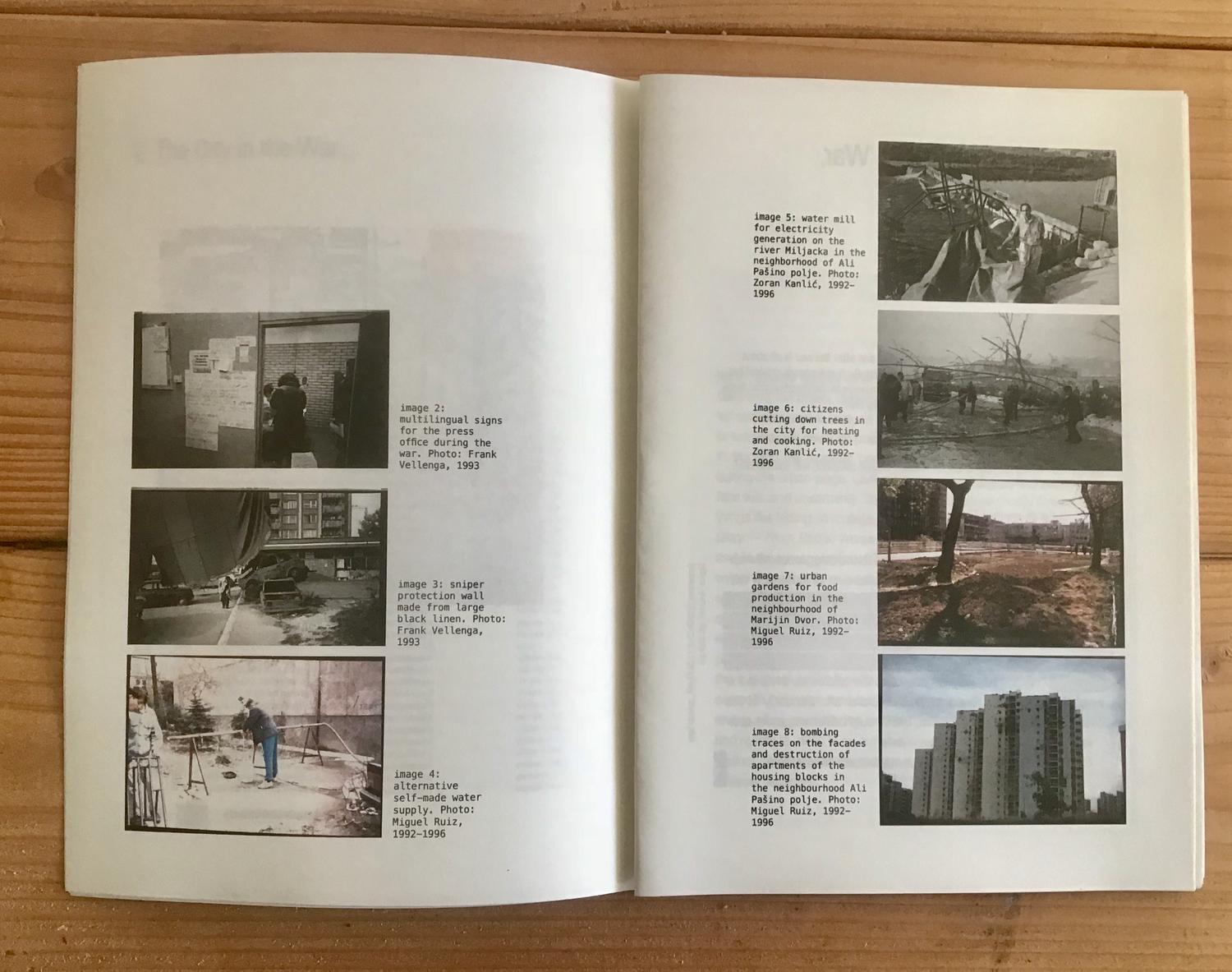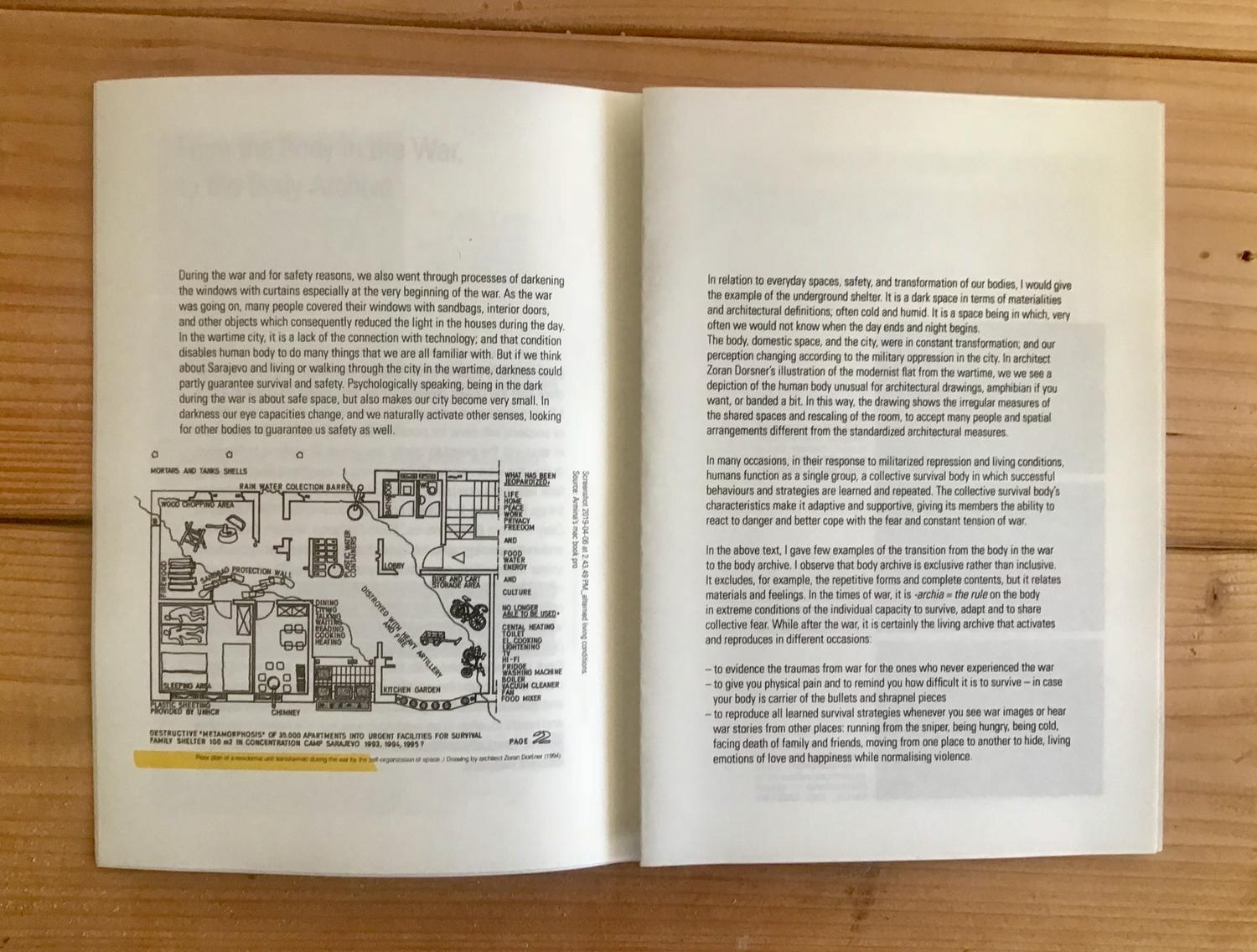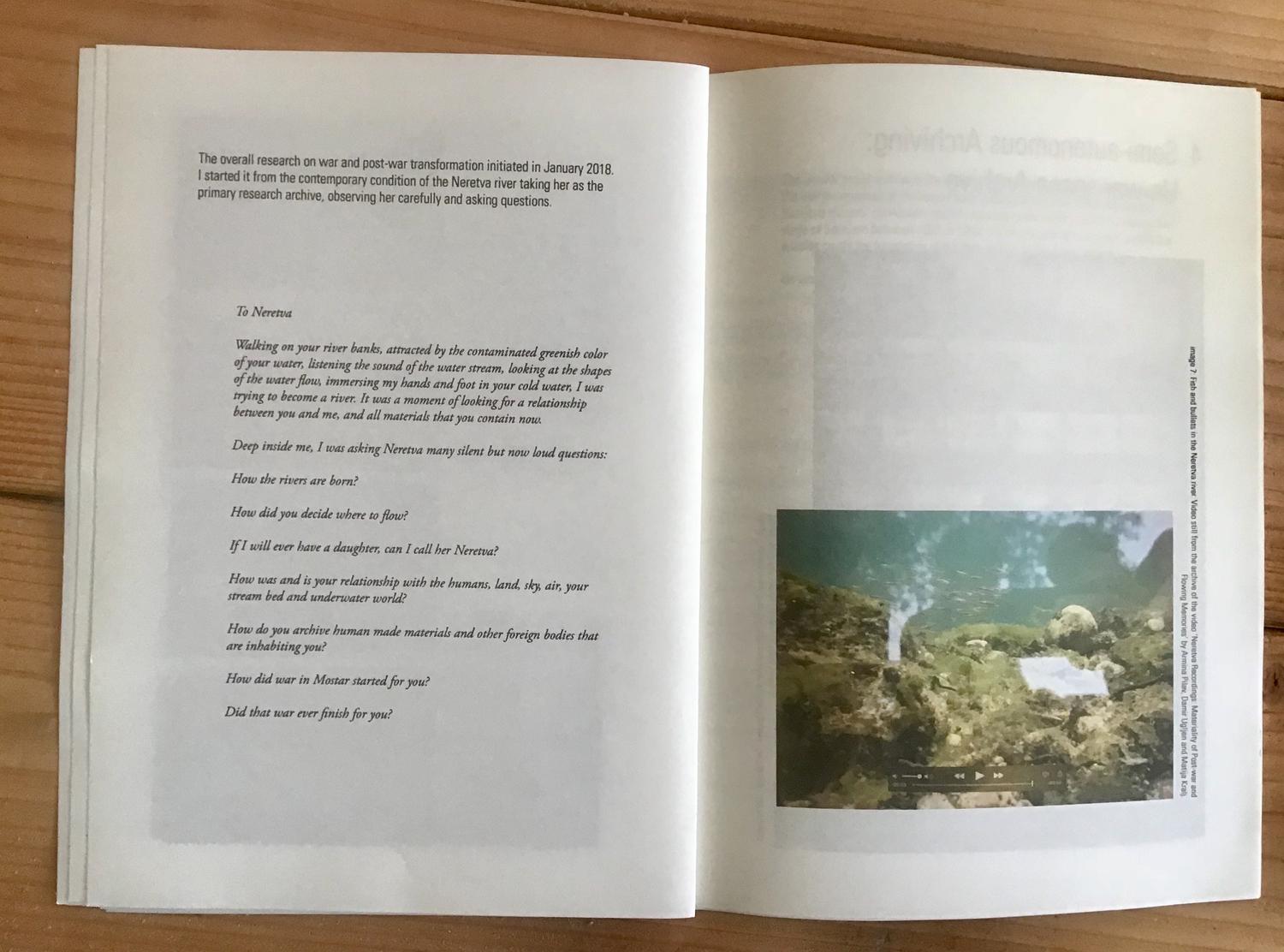Un-Making Image #7: Transitional Archives of War
Date: April 2019
Location: TENT Rotterdam
In the first session of Un-Making Image in 2019 taking place at TENT Rotterdam, we host a talk by researcher, architect and activist Armina Pilav.
In this talk, based on her pluriannual research about military war destruction and human capacity to transform military violence, Armina Pilav will show different materials related to the body, nature and architectures as system of archives.
She will show and challenge the processes of making systems of archives, of and about the war in Bosnia and Herzegovina (1992-1996); that contain, are made of, and perform the war destruction and inhabitant’s survival experiences, in Bosnian cities Mostar and Sarajevo.
She assumes human bodies that survived (or did not) the war violence, as living archives that learned during the war conditions, that can be activated at any time and in relation to other war contexts.
As well, Armina observes the river Neretva in Mostar as a flowing archive. The river and her organic system significantly changed during and after the war in environmental terms, but also in its spatial and social role. From collecting anorganic materials, pieces of exploded bombs, fragments of bridges, etc during the war, to introducing natural and hybrid spaces and species.
Finally, Armina will discuss through her own research archive "un-war space", the transitional archive as certain space of mediation between human experiences of the war, images of the war and collective documenting practices; politics and modes of creating an archive, as well as its possible use or performance of the archive in the form of an art project, film, exhibition, or etc.
About Armina:
Armina Pilav is a feminist, architect, guest researcher and lecturer at the Faculty of Architecture and Built Environment, TU Delft. She received the Marie Curie Individual Fellowship for her Un-war Space research (2016-2018). Her practice focuses on topics of space, body and politics in extreme conditions of war destruction. It analyses ecologies of transformations of nature, space and society during and after wartime through archiving practices, transitional architectures and post-traumatic landscape systems. Her recent research on destruction of Sarajevo and inhabitant’s transformation of violence has been exhibited at the Venice Biennale of Architecture (2018). Armina is a member of the Association for Culture and Art Crvena in Sarajevo.












The BookletDate: April 2019
Location: TENT Rotterdam
In the first session of Un-Making Image in 2019 taking place at TENT Rotterdam, we host a talk by researcher, architect and activist Armina Pilav.
In this talk, based on her pluriannual research about military war destruction and human capacity to transform military violence, Armina Pilav will show different materials related to the body, nature and architectures as system of archives.
She will show and challenge the processes of making systems of archives, of and about the war in Bosnia and Herzegovina (1992-1996); that contain, are made of, and perform the war destruction and inhabitant’s survival experiences, in Bosnian cities Mostar and Sarajevo.
She assumes human bodies that survived (or did not) the war violence, as living archives that learned during the war conditions, that can be activated at any time and in relation to other war contexts.
As well, Armina observes the river Neretva in Mostar as a flowing archive. The river and her organic system significantly changed during and after the war in environmental terms, but also in its spatial and social role. From collecting anorganic materials, pieces of exploded bombs, fragments of bridges, etc during the war, to introducing natural and hybrid spaces and species.
Finally, Armina will discuss through her own research archive "un-war space", the transitional archive as certain space of mediation between human experiences of the war, images of the war and collective documenting practices; politics and modes of creating an archive, as well as its possible use or performance of the archive in the form of an art project, film, exhibition, or etc.
About Armina:
Armina Pilav is a feminist, architect, guest researcher and lecturer at the Faculty of Architecture and Built Environment, TU Delft. She received the Marie Curie Individual Fellowship for her Un-war Space research (2016-2018). Her practice focuses on topics of space, body and politics in extreme conditions of war destruction. It analyses ecologies of transformations of nature, space and society during and after wartime through archiving practices, transitional architectures and post-traumatic landscape systems. Her recent research on destruction of Sarajevo and inhabitant’s transformation of violence has been exhibited at the Venice Biennale of Architecture (2018). Armina is a member of the Association for Culture and Art Crvena in Sarajevo.











